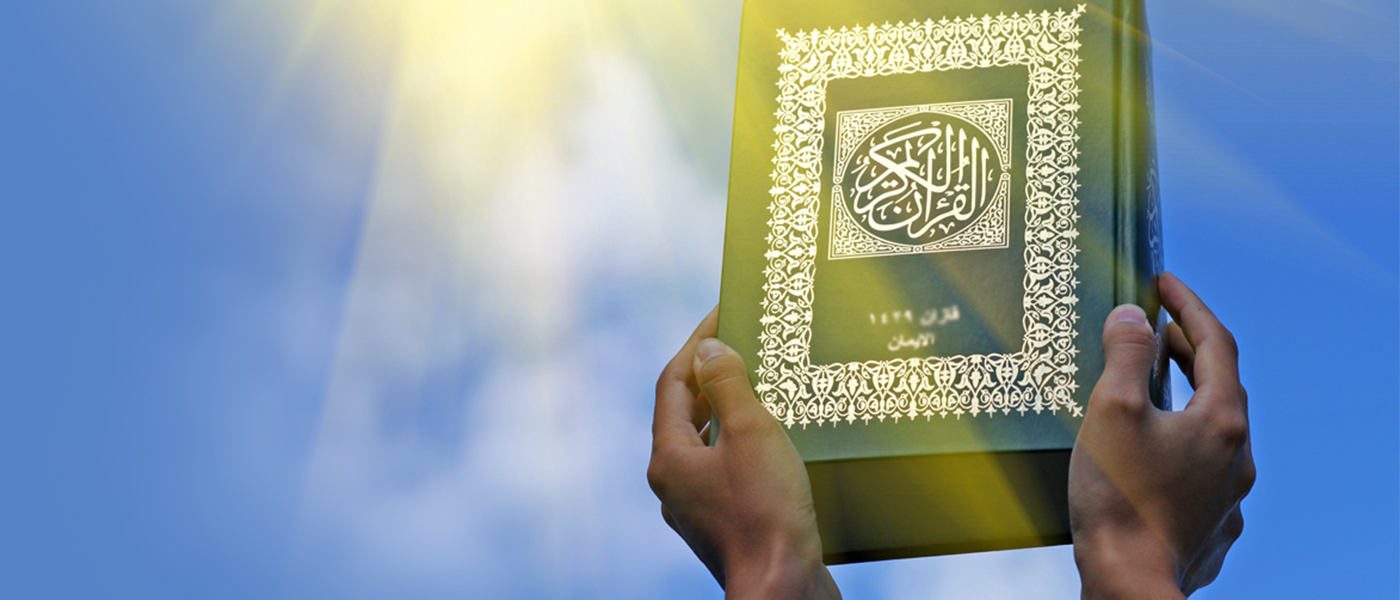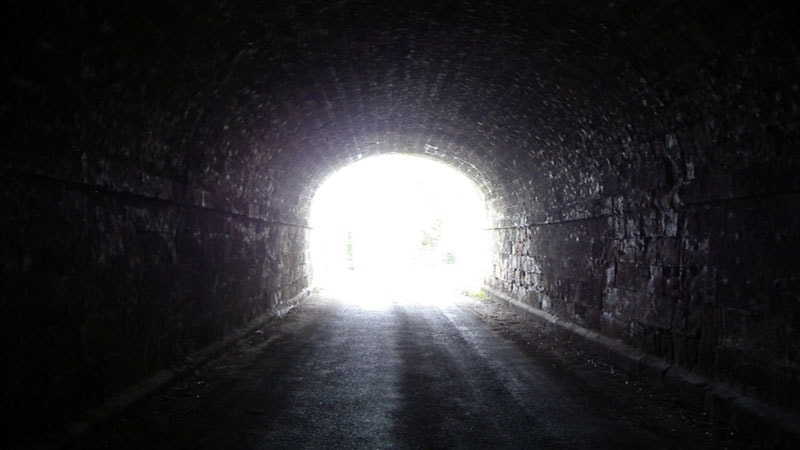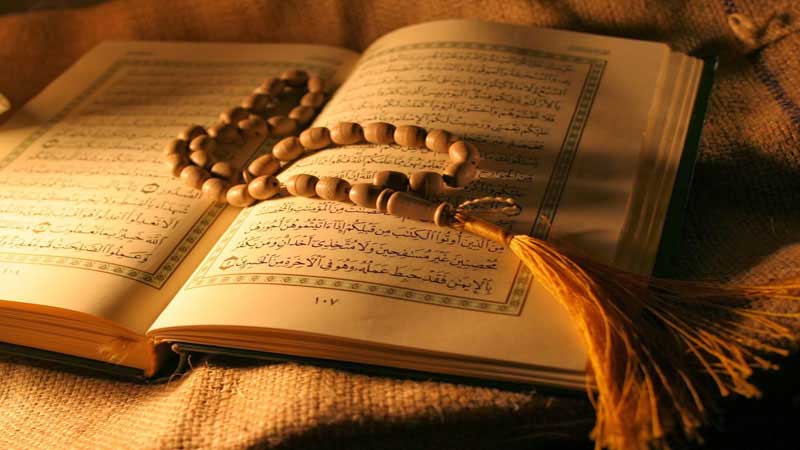

I wanted to Convert to Islam
My name is Tarik Preston. I embraced the religion of Islam in 1988 at the age of 19.
The story of how I came to embrace Islam is not a very long story, and in many respects, I think that the story of how Allah (God) continued to guide me after I entered Islam is more of an inspiring story.
Nevertheless, this story begins with my name. I was given the name Tarik at birth. In the 60s, the 70s, and even the 80s, it wasn’t all that unusual for some Americans to give their children African names. Many times, the names they chose from Africa were actually Islamic names, which is what happened with my name.
[…] Someone who knew the significance of my name […] would ask me, “Do you know what your name means?” I would reply proudly as I had been taught: “It means ‘star of piercing brightness.’“
[…] I started college at the age of 16 majoring in pre-med/biology with the intent, at that time, of becoming a doctor. […] During my freshman year, I attempted to read the Bible, but Christianity had begun not to make sense to me.
While studying the marvelous complexity of cell biology that year, several of my classmates and I reaffirmed our belief in the Creator and that creation was not an accident as some scientists speculated.
During spring break, I had a theological discussion with my grandmother, with whom I was very close. And she, despite being a Christian, made a remarkable statement that I paid close attention to.
She said: “I worship God and I don’t worship Jesus, because I feel safer worshipping God!” She advised me not to pray in the name of Jesus anymore and to just pray to God!
When I returned to college after that conversation, I continued to pray every night before sleeping as I had been taught. But I decided that I would no longer pray in the name of Jesus, and to direct my prayers only to God. […]
Still searching for something that would guide me safely through life, one day I asked God to guide me while walking across campus.
During my junior year in college, a fellow student who I knew embraced Islam saw me walking across campus, and he greeted me. […] He then asked me if I was a Muslim, to which I replied (at that time), “No. I am a United Methodist.” He replied: “Oh! I thought you were a Muslim because your name is Tarik!”
Not long after that encounter, he came to a study session that a few classmates and I were having, and he attempted to inform us about Islam. He was very young and very new to Islam himself, so he didn’t know very much. […]
[…] When I returned home that summer, I took a summer job as a telemarketer where I met a Muslim named Ahmed. Despite being a Puerto Rican convert to Islam, he had the same distinct look and demeanor as my friend from college. […]
He began talking to me about Tawheed (the oneness of God). I was impressed with the concept of Islamic monotheism.
Eventually, he invited me over to his house and showed me a copy of the English translation of the Quran. I was very impressed by the respect that he had for this Book, and I asked him if I could borrow it in order to read it. He reluctantly agreed, saying that it was his only copy of the Quran, and he sternly advised me to respect the Book and keep it clean and in a place of respect in my home. I couldn’t wait to read it!
Two weeks later, I invited Ahmed to my house, and we sat and talked again about Islam. I informed him that I believed the Quran was the truth and that I wanted to convert to Islam.
The very next day we went together to the Islamic Center in Washington D.C., and I embraced Islam.
A few years after my conversion, Allah blessed me to be able to study Islam at the Islamic University of Medina where I earned an Associate’s degree in Arabic language and a Bachelor’s degree in Hadith Sciences.
I hope the story of how I came to Islam encourages others to convert to Islam. I also hope that my story encourages my fellow Muslim brothers and sisters to share the true message of Islam with those around them in word and deed.
To read the complete version of this text, go to this
Share This Article

My Path toward Light: Part 1
My name is Abdullah Al-Kanadi. I was born in Canada. My family, who were Roman Catholics, raised me as a Roman Catholic until I was 12 years old. I have been Muslim for approximately six years, and I would like to share the story as a new muslim with you.
During my childhood I attended a Catholic religious school. […] The more I learned about my religion, the more I questioned it!
At the tender age of twelve, I decided I would be an atheist in order to punish God. […] My teenage years were filled with misery and loneliness. I was accepted in a local technical school and decided that I should further my education and maybe make some good money, so that I would be happy. […]
I would forget my family and be with my friends all the time. One night, I told my parents I was going to move out. They told me, I couldn’t, and that I wasn’t ready for it and that they wouldn’t allow it! I was 17 years old and very headstrong; I swore at my parents and said to them all sorts of evil things, which I still regret to this day. I felt emboldened by my new freedom. […] I was working and going to school when my roommates introduced me to marijuana. […]Soon though, I started to smoke more and more, until during one weekend I had smoked so much, that it was Monday morning and before I knew it, it was time for school. I thought, well, I’ll take one day of school off, and go the next day. […] I never returned to school after that. I finally realized how good I had it. […] Who needed school anyways?
I was living a great life, or so I thought; I became the ‘resident’ bad boy at work. […]I felt worthless and completely valueless. I was stealing from work and from friends to help maintain the ‘chemical haze’. […] I was beginning to crack and I needed a solution, and I figured that religion would help me.
[…] I bought a couple of books on Wicca and Nature Worship, and found that they encouraged the use of natural drugs, so I continued. People would ask me if I believed in God, and we would have the strangest conversations while under the ‘influence’, but I distinctly remember saying that no, in fact I don’t believe in God at all, I believe in many gods as imperfect as me.
Through all this, there was one friend who stuck by me. He was a ‘Born Again’ Christian and was always preaching to me, even though I would mock his faith at every opportunity. He was the only friend I had at the time who didn’t judge me, so when he invited me along to go to a youth weekend camp I decided to go along. I had no expectations. I thought I would have a huge laugh making fun of all the “Bible Thumpers”. […]They played all sorts of music which praised God. I watched as the young and old, male and female cried out for forgiveness and shed tears over everything. I was really moved and I said a silent prayer along the lines of “God, I know I have been a horrible person, please help me, and forgive me and let me start fresh.” I felt a surge of emotion come over me, and I felt tears roll down my cheek. […]
I returned to my party home and eschewed all drugs, intoxicants, and girls. I promptly told my friends how they needed to be Christians so they could be saved. I was shocked that they rejected me. […]
I started to hang out at a Christian “youth house” which was basically a house where teens could go. […] In spite of this, I felt like a fraud, for I started drinking and dating again. […] Through all this, my one Christian friend would try to council me and keep me on the right track.
To read the complete version of this text, go to this link
Read More

My Path toward Light: Part 2
I still remember to this day my first encounter with a Muslim. One of the boys brought his friend to the youth house. […] What I do remember is the boy saying “I brought my friend ‘so and so’, he’s a Muslim and I want to help him become a Christian”. I was absolutely amazed by this 14 year old kid, he was calm and friendly! […] It blew my mind!
The Muslim kid left a copy of the Quran on the shelf, […] I started reading it. I soon became infuriated with this book when I saw that it made more sense than the Bible. […]The youth group used to go to various Churches on weekends to prayer events and Saturday nights were spent in a huge Church instead of at the bar. I remember being at one such event called ‘The Well’ and I felt so close to God and wanted to humble myself and show my Creator my love for Him. I did what felt natural, I prostrated. I prostrated like Muslims do in the daily prayers, yet I didn’t know what I was doing, all I knew was, that it felt really good… it felt right. […]
I felt myself slowly slipping away from the Church as my faith ebbed away. It was at this time that my best friend, the Christian man who had helped me come to Christ, along with another close friend of mine, raped my girlfriend who I had been with for two years. […] A couple of weeks later, it was revealed that the man who ran the youth house had molested one of the boys that I was friends with.
My world was shattered! […] I had nothing left to give, I was empty again. […] A little while after, my manager at work told me that a “Moslem” would be working with us, he was really religious and we should try to be decent around him. […]
He didn’t swear, he never got angry and was always calm, kind and respectful. I was truly impressed and decided that he would make an excellent Christian. We went back and forth asking things about each other’s religions, but after a time I felt myself getting more and more defensive. […] I felt it was he who was on the truth! […] I was convinced that if I could only pray there again, I could get the feeling back and the strong faith and then I could convert the Muslim. […]
I started to realize that I was being pushed in a certain direction, so I prayed over and over to my Creator to surrender my will to His[…] I sat up in bed and cried, ‘Jesus, God, Buddha, whoever You are, please, please guide me, I need You! […] If Christianity is the correct way then make me strong, and if it is Islam, then bring me to it!’ […] I went to work the next day and said to the Muslim brother “how do I say ‘hi’ to you?” He asked me what I meant and I said, “I wanted to become a Muslim”. He looked at me and said “Allahu Akbar!” We hugged for a good minute or so and I thanked him for everything and I began my journey into Islam.
I look back at all the events that happened in my life over time, and I realize that I was being prepared to become a new Muslim. I was shown so much mercy from God. Out of all that happened in my life, there was something to learn. I learned the beauty of the Islamic prohibition of intoxicants, the prohibition of illegal sex, and the need for the Hijab. […]
For those of us who have accepted Islam at some point in our lives, we truly are blessed and fortunate. […]Islam truly is a way of life, and even if we suffer poor treatment by fellow Muslims or non-Muslims, we must always remember to be patient and turn only to God. […]
May God increase our faith and make it in accords to that which pleases Him and grant us His Paradise, Amen!
To read the complete version of this text, go to this link
Read More

